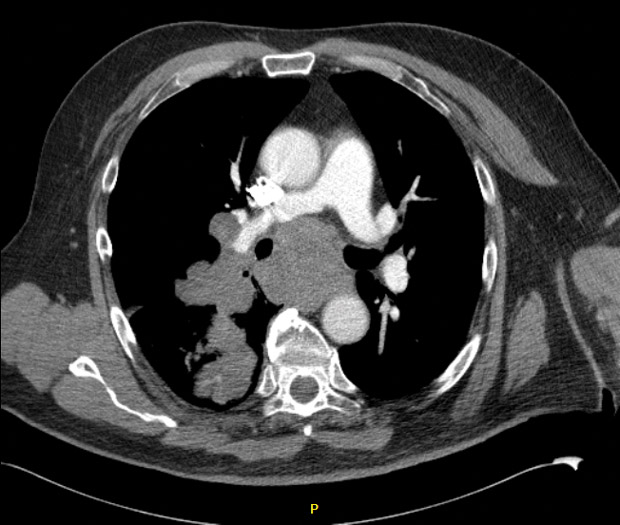Pulmonary illnesses linked to e-cigarette products
This column reviews details on recent recalls, warnings, and approvals.
Recalls, warnings, and alerts
An alert that low levels of N-nitrosodimethylamine (NDMA) were found in some ranitidine medicines, including Zantac. The impurity is classified as a probable human carcinogen. Due to this issue, Sandoz Inc. has recalled all quantities and lots of ranitidine hydrochloride capsules (150 mg and 300 mg), and Apotex Corp. has also recalled all its ranitidine tablets (75 mg and 150 mg). At this time, the FDA is not calling for individuals to stop taking ranitidine products that have not been recalled. However, those taking prescription ranitidine who wish to discontinue use should talk to their clinician about other treatment options, and those taking over-the-counter (OTC) ranitidine could consider other OTC medications approved for their condition.
A warning that palbociclib (Ibrance), ribociclib (Kisqali), and abemaciclib (Verzenio), used to treat some patients with advanced breast cancer, may cause rare but severe inflammation of the lungs. The overall benefit of the cyclin-dependent kinase 4/6 inhibitor medicines is still greater than the risks when used as prescribed, the FDA said. Clinicians should monitor patients regularly for pulmonary symptoms indicative of interstitial lung disease and/or pneumonitis. They should interrupt the drugs in patients who have new or worsening respiratory symptoms and should permanently discontinue treatment in patients with severe interstitial lung disease and/or pneumonitis.
A recall of all doses of parathyroid hormone (Natpara) for injection (25 µg, 50 µg, 75 µg, and 100 µg) by Takeda Pharmaceutical Company Limited due to a potential presence of rubber particulate. To avoid hypocalcemia after stopping the drug, it is crucial for patients to contact their prescribing clinicians to ensure close supervision, including frequent monitoring of blood calcium levels and close titration of active vitamin D and calcium supplements, the FDA said.
An expanded recall of three lots of losartan potassium tablets USP and two lots of losartan potassium/hydrochlorothiazide tablets USP by Torrent Pharmaceuticals Limited due to the detection of trace amounts of N-methylnitrosobutyric acid. The impurity is a possible carcinogen.
A recall of all unexpired drugs intended to be sterile by AmEx Pharmacy due to significant quality and sterility concerns. The company ceased operations in July.
A recall of all lots of unexpired drugs intended to be sterile by KRS Global Biotechnology, Inc., due to a lack of sterility assurance. Products were distributed nationwide to hospitals, doctor's offices, surgical centers, pharmacies, veterinarians' offices, and patients.
A recall of two lots of Milk of Magnesia (2400 mg/30 mL oral suspension) by Plastikon Healthcare due to microbial contamination. Affected products were distributed in August to clinics and hospitals.
A recall of two lots of quinacrine dihydrochloride (bulk powder in amber high-density polyethylene bottles) by Darmerica LLC due to a label mix-up. The product, intended for further compounding use by pharmacies, was tested and identified as artemisinin rather than quinacrine. Affected products were distributed nationwide to 14 compounding pharmacies.
A warning to Stemell, Inc., for selling unapproved umbilical cord blood and umbilical cord products that may put patients at risk. The unapproved products are StemL UCB-Plus and StemL UCT-Plus. The FDA continues to warn patients about the risk of unapproved stem-cell therapy.
Miscellaneous
A safety communication about incidents of severe respiratory disease that appear to be associated with the use of e-cigarette/vaping products. As of Oct. 15, there were 1,479 vaping-related lung injury cases reported from 49 states (all except Alaska), the District of Columbia, and the U.S. Virgin Islands, and 33 deaths have been confirmed in 24 states, according to the CDC. In many cases, patients reported a gradual start of symptoms, including breathing difficulty, shortness of breath, and/or chest pain before hospitalization. Some reported mild to moderate gastrointestinal (GI) illness, including vomiting, diarrhea, and other symptoms such as fever or fatigue. Most of the people in this outbreak reported using tetrahydrocannabinol (THC)-containing products, or both THC-containing products and nicotine-containing products. The FDA has warned the public to stop using THC-containing vaping products and any vaping products obtained on the street. The FDA has also warned JUUL Labs, Inc., for marketing unauthorized modified-risk tobacco products by engaging in labeling, advertising, and/or other activities directed to consumers, including a presentation given to youth at a school. In September, the vape brand suspended broadcast, digital, and print advertising in the U.S.
A drug safety communication that hepatitis C medicines have led to rare cases of worsening liver function or liver failure in some patients. The FDA has identified 63 cases of liver decompensation with the use of glecaprevir/pibrentasvir (Mavyret), elbasvir/grazoprevir (Zepatier), or sofosbuvir/velpatasvir (Vosevi) to treat hepatitis C, most of which occurred in patients with moderate to severe liver impairment who should not have been prescribed these medicines. Some of the cases led to liver failure and death. The medications are FDA-approved to treat chronic hepatitis C in patients without liver impairment or with mild liver impairment (Child-Pugh A). The FDA recommended that clinicians continue to prescribe the drugs as indicated, assess severity of liver disease at baseline, closely monitor for signs and symptoms of worsening liver function, and discontinue the drugs in patients with signs and symptoms of liver decompensation or as clinically indicated.
A recommendation that health care facilities and duodenoscope manufacturers transition to duodenoscopes with disposable endcaps. While a full transition away from conventional duodenoscopes to innovative models will take time, health care facilities should develop plans to transition away from older models that have fixed endcaps and begin investing in newer, innovative models. While fully disposable duodenoscopes are not yet available, partially disposable designs simplify or eliminate the need for reprocessing, which may reduce between-patient duodenoscope contamination as compared to reusable/fixed endcaps.
Approval of changes to the packaging for tablet and capsule forms of loperamide to address abuse and misuse of the OTC antidiarrheal drug. The packaging changes will affect the following brand-name OTC medications: Imodium A-D, Imodium Multi-Symptom Relief, and Be Health Loperamide HCl Capsules. The changes limit each carton to no more than 48 mg of loperamide and require the tablets and capsules to be packaged in individual doses. The FDA will continue to work with manufacturers of OTC loperamide, including those of generic and liquid products, to institute appropriate package sizes and types that support safe use.
A request for comments to gain input on the development of abuse-deterrent formulations of prescription stimulants. The FDA is interested in input from patients, patient advocates, health care professionals, the pharmaceutical industry, and others on the potential impact of these novel formulations, which may reduce abuse of prescription stimulants. The federal government's electronic filing system will accept comments until 11:59 p.m. Eastern Time on Nov. 19.
Approvals
Semaglutide (Rybelsus) oral tablets to improve control of blood glucose in adults with type 2 diabetes, along with diet and exercise. The drug is the first noninjection glucagon-like peptide (GLP-1) receptor agonist approved in the U.S. Its efficacy and safety were studied in two placebo-controlled trials and several trials that compared it to other GLP-1 injection treatments. In the placebo-controlled studies, the drug as a standalone treatment resulted in a significant reduction in HbA1c levels compared to placebo. After 26 weeks, 69% of participants taking 7 mg/d and 77% of those taking 14 mg/d had an HbA1c below 7%, compared with 31% of those on placebo. A boxed warning advises clinicians about a potential increased risk of thyroid C-cell tumors and the fact that the drug is not recommended as the first choice of medicine to treat diabetes. It should not be used in patients who have a personal or family history of medullary thyroid carcinoma or in those who have had multiple endocrine neoplasia syndrome type 2. The drug also carries warnings about pancreatitis, diabetic retinopathy, hypoglycemia, acute kidney injury, and hypersensitivity reactions. The most common side effects are nausea, diarrhea, vomiting, decreased appetite, indigestion, and constipation.
Glecaprevir and pibrentasvir (Mavyret) tablets for an eight-week treatment duration for adults and children ages 12 years and older or weighing at least 99 pounds with chronic hepatitis C virus (HCV) infection. The regimen is the first eight-week treatment approved for all treatment-naive adult and certain pediatric patients who have chronic HCV genotypes 1 through 6 infection and compensated cirrhosis. Standard treatment length for patients with compensated cirrhosis was previously 12 weeks or more. Across clinical trials of the regimen for durations of eight, 12, and 16 weeks, sustained virologic response ranged from 91% to 100%. The most common adverse reactions are headache and fatigue. The treatment is contraindicated in patients with moderate or severe liver impairment (Child-Pugh B or C), those with any history of liver decompensation, and those taking the drugs atazanavir and rifampin.
Istradefylline (Nourianz) tablets as an add-on treatment to levodopa/carbidopa in adult patients with Parkinson's disease experiencing “off” episodes. An “off” episode is a time when a patient's medications are not working well, leading to disease symptoms (e.g., tremor, difficulty walking). Effectiveness was shown in four 12-week placebo-controlled studies in a total of 1,143 participants. In all four studies, patients treated with the drug experienced a significant decrease from baseline in daily “off” time compared to those receiving placebo. The most common adverse reactions were dyskinesia, dizziness, constipation, nausea, hallucination, and insomnia. If hallucinations, psychotic behavior, or impulsive/compulsive behavior occurs, clinicians should consider a dosage reduction or discontinuation.
Nintedanib (Ofev) capsules to slow the rate of decline in pulmonary function in adults with interstitial lung disease associated with systemic sclerosis or scleroderma. This is the first FDA-approved treatment for the rare lung condition. Effectiveness was studied in a randomized, double-blind, placebo-controlled trial of 576 patients ages 20 to 79 years with the disease. After 52 weeks of treatment, those who received the drug had less lung function decline compared to those on placebo. The most frequent serious adverse event reported in patients who received the drug was pneumonia (2.8% vs. 0.3% in the placebo group), and diarrhea was the most frequent adverse reaction that led to permanent dose reduction of the drug. Adverse reactions leading to permanent dose reductions were reported in 34% of patients receiving the drug, compared to 4% of those receiving placebo. Common side effects include diarrhea, nausea, abdominal pain, vomiting, liver enzyme elevation, decreased appetite, headache, weight loss, and hypertension. The prescribing information includes warnings for patients with moderate or severe hepatic impairment, those with elevated liver enzymes and drug-induced liver injury, and patients with GI disorders. The drug was originally approved in 2014 to treat adults with idiopathic pulmonary fibrosis.
Jynneos Smallpox and Monkeypox Vaccine (live, nonreplicating) to prevent smallpox and monkeypox disease. The vaccine is indicated for adults determined to be at high risk for smallpox or monkeypox infection. It is the only currently FDA-approved vaccine for the prevention of monkeypox disease.
First-time generic approvals
Nabumetone tablets USP (500 mg, 750 mg, and 1,000 mg) to relieve signs and symptoms of osteoarthritis and rheumatoid arthritis. (Brand name: Relafen)
Halcinonide cream USP (0.1%) for the relief of inflammatory dermatoses. (Brand name: Halog)
Posaconazole delayed-release tablets (100 mg) for the prophylaxis of invasive Aspergillus and Candida infections in patients who are at high risk due to being severely immunocompromised. (Brand name: Noxafil)
Triamterene capsules USP (50 mg and 100 mg) for the treatment of edema associated with congestive heart failure, cirrhosis of the liver, and the nephrotic syndrome, as well as to treat steroid-induced edema, idiopathic edema, and edema due to secondary hyperaldosteronism. (Brand name: Dyrenium)
Tafluprost ophthalmic solution (0.0015%) for reducing elevated intraocular pressure in patients with open-angle glaucoma or ocular hypertension. (Brand name: Zioptan)
Nitisinone capsules (2 mg, 5 mg, and 10 mg) to treat adult and pediatric patients with hereditary tyrosinemia type 1 in combination with dietary restriction of tyrosine and phenylalanine. (Brand name: Orfadin)
Sapropterin dihydrochloride powder for oral solution (100 mg/packet) to reduce blood phenylalanine levels in patients with hyperphenylalaninemia due to tetrahydrobiopterin-responsive phenylketonuria. (Brand name: Kuvan)
Note: The FDA states that drugs are not always commercially available immediately after approval.




